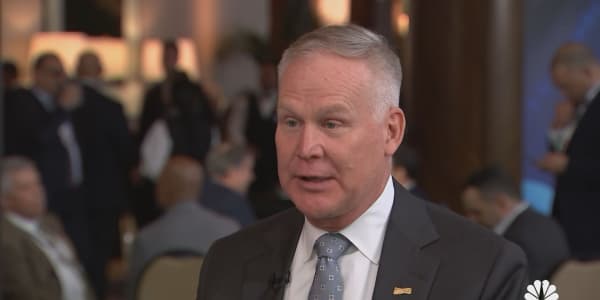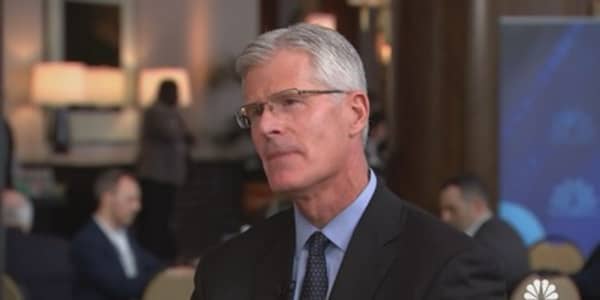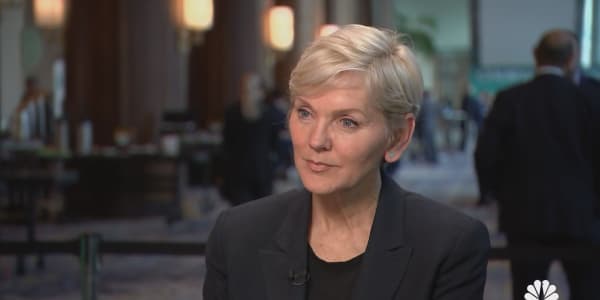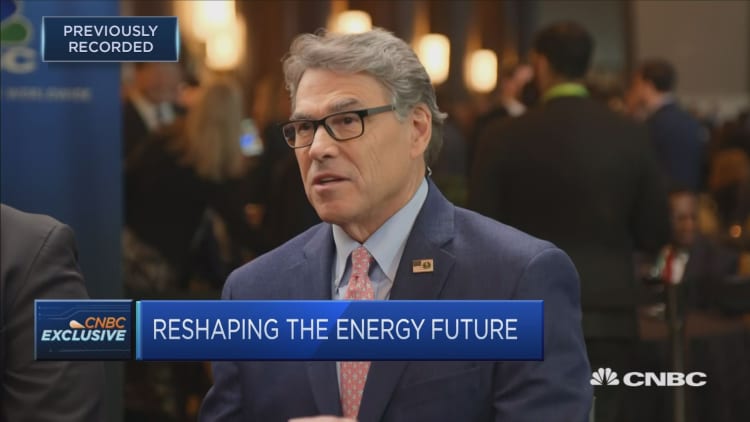
The United States will continue to do whatever it takes to rid Venezuela of disputed leader Nicolas Maduro, Secretary of State Mike Pompeo told CNBC after delivering an address to the energy industry in Houston.
"As the president said, every option is on the table to deliver to the Venezuelan people the democracy they deserve. And then ultimately we'll build back an economy where they can again have the wealth that they have under their own feet," Pompeo said in an interview with CNBC's Brian Sullivan, referring to Venezuela's vast oil reserves.
The U.S. has slapped a range of sanctions on Venezuela, including against state oil giant PDVSA, a critical source of revenue for Maduro's embattled government. Still, Maduro is clinging to power, sparking a series of deadly clashes and prolonging Venezuela's punishing economic crisis.
Asked whether military action is off the table, Pompeo said President Donald Trump has made it clear that the U.S. will achieve its goal of ensuring the success of the transition government led by opposition leader Juan Guaido. Every option remains available, and the U.S. will work with its allies to get the right outcome, he added.
"Now 50 plus countries have recognized that Maduro is illegitimate. It's time for him to go," Pompeo said on the sidelines of the CERAWeek by IHS Markit conference.
Pompeo made his comments in an appearance with Secretary of Energy Rick Perry, who is also in Houston for one of the year's biggest gatherings of energy executives and thought leaders. The two cabinet members delivered a forceful message on the potential of U.S. energy supplies to bolster allies and disrupt countries that would use their resources as a weapon.
"You can get American energy and there aren't any strings attached. That's the message," Perry said.
In addition to the Maduro regime, Pompeo and Perry hit out at China, Russia and Iran.
In his keynote speech earlier on Tuesday, Pompeo said China is preventing Southeast Asian countries from developing offshore energy resources by laying claim to vast swaths of the South China Sea.
Asked how the United States can blunt China's growing influence, Pompeo said the U.S. must put its diplomatic corps to work to make sure Southeast Asian nations can access their oil and gas wealth. The U.S. can also use its own energy innovation and growing role as an oil and natural gas exporter to help the region meet its needs, he said.
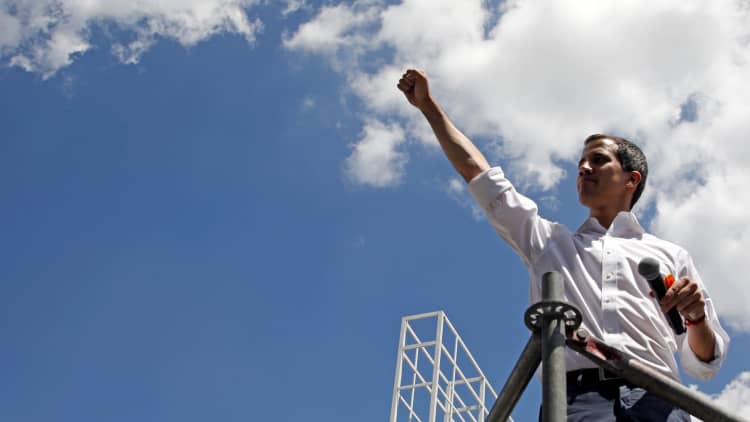
Perry said U.S. liquefied natural gas is a critical tool for the United States to help its partners achieve greater energy security. In particular, these seaborne supplies can help Europe reduce its dependence on Russian natural gas.
"Having diversity of fuel, diversity of supply, diversity of routes — that's the real key here. The American LNG has the ability to truly make Europe free from that Russian intervention," he said.
Pompeo said the United States will continue to push Iran's oil exports towards zero. However, he declined to say whether the administration would stop issuing wavers to several countries, which allow them to continue importing limited quantities of Iranian crude.
The Trump administration restored sanctions against Iran in November in a bid to get the nation to agree to tougher restrictions on its nuclear program and suspend support for U.S.-designated terror groups, among other demands.



